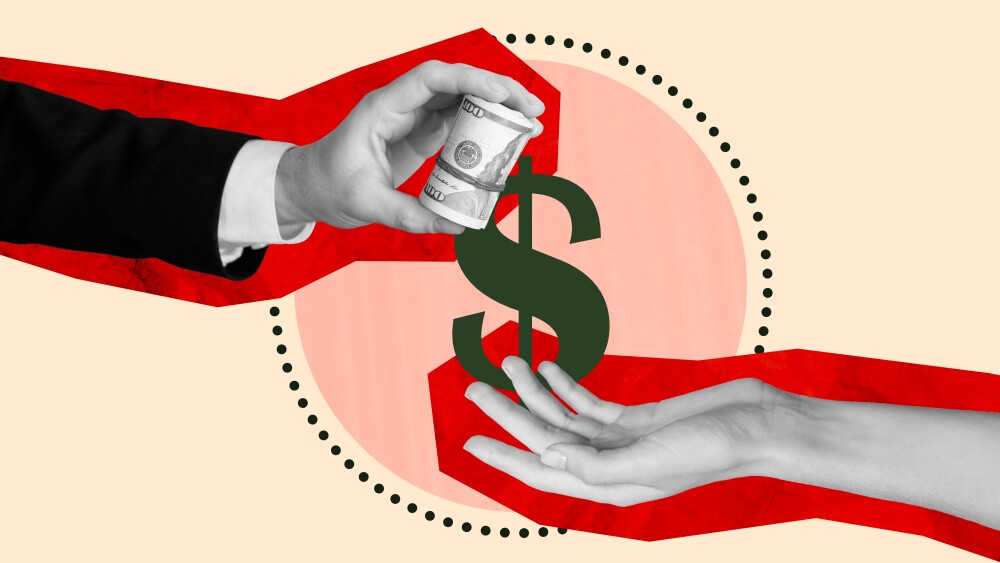The co-head of a Phase III trial reported Johnson & Johnson’s single-shot COVID-19 vaccine was highly effective at preventing severe disease, including among patients infected with the circulating Delta coronavirus variant.
Novikov Aleksey/Shutterstock
In a media briefing on Friday, the co-head of a Phase III trial reported Johnson & Johnson’s single-shot COVID-19 vaccine was highly effective at preventing severe disease, including among patients infected with the circulating Delta coronavirus variant.
The study, known as Sisonke, examined the efficacy of J&J’s Ad26.COV2.S COVID-19 vaccine in 477,234 South African healthcare workers. As reported by Reuters on Friday, a Sisonke investigator said the single-dose vaccine yielded a 91% to 96.2% protection rate against mortality, a 67% efficacy against infection with the Beta coronavirus variant and a 71% efficacy against the Delta variant.
“Consistently after receiving the vaccine, there was very little death occurring in the vaccinated group as compared to the control group and showing a remarkable up-to 96.2% protection against death,” said joint lead investigator Glenda Gray at a press conference. “This was our primary endpoint, and we are able to say this vaccine protected health workers against death,” she added.
Given the findings, Gray noted that the data do not yet support the need for a booster shot, at least with the J&J vaccine.
The new study findings are promising for South Africa—the country’s vaccination plan got off on a rocky start after it temporarily paused the use of the J&J vaccine in April when the U.S. suspended the candidate due to its association with rare blood clots.
Data from other sources also questioned the efficacy of the shot against the highly contagious Delta variant. Infectious disease experts in the U.S. have suggested recipients of the J&J shot receive a booster shot of the Pfizer-BioNTech or Moderna vaccines because of the Delta strain.
CVS Health has stopped offering the J&J shot at several of its locations throughout the country, given the vaccine’s production issues and concerns about its efficacy against the circulating Delta coronavirus variant. The drugstore chain said it will instead keep its focus on offering customers the Moderna and Pfizer-BioNTech shots. CVS Health said it will still offer the J&J vaccine at nearly 1,000 MinuteClinic locations in 25 states, in addition to Washington D.C.
The risk of rare side effects has also stymied the wide-scale roll-out of the vaccine in certain areas. For instance, out of 12.8 million doses of the J&J shot administered in the U.S., there have been approximately 100 reports of Guillain-Barré syndrome as of June 30. Following these reports, the U.S. Food and Drug Administration (FDA) has made an update to the vaccine’s label to describe the possible risk for the rare side effect, which may occur within a 42-day period after inoculation.
While no cases of Guillain-Barré syndrome have been officially reported with either the Pfizer/BioNTech’s or Moderna’s shot, up to 227 cases of the syndrome have been reported out of 51.4 million doses of the AstraZeneca vaccine in the European Union and European Economic Area (EEA).
Studies have yet to prove a causal relationship between these COVID-19 vaccines and Guillain-Barré syndrome, but other vaccines (influenza and shingles vaccines) have also been linked to the disorder.
The concerns and issues surrounding the J&J vaccine are not stopping many people from going great lengths to obtain it for themselves, particularly if they live in parts of the world where the vaccine is not readily available. The San Francisco Chronicle reported that many international travelers are coming through the San Francisco airport to get the J&J shot. In fact, as many as 80% of the appointments for the San Francisco International Airport’s vaccine clinic are being booked by international travelers.





